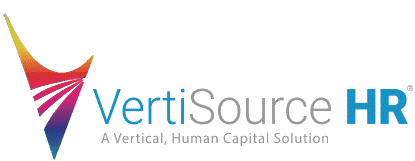At the start of the Mid-Year, we would like to remind you about the recent legislative changes that came into effect in 2024. As your trusted partners, we provide a brief overview below.
RETALIATION: PROTECTIONS AND PENALTIES EXPANDED
SB 497: Labor Code Sections 98.6, 1102.5, and 1197.5 were amended to increase employee Anti-Retaliation protections and enhance employer violation penalties. This bill enhanced violation penalties to a $10,000 penalty per employee per violation. When considering the penalty amount, the DLSE is instructed to “consider the nature and seriousness of the violation based on the evidence obtained during the course of the investigation.”
Additionally, it established a rebuttable presumption of retaliation if an employer takes any adverse employment action within 90 days of an employee engaging in a protected activity.
Adverse employment action defined:
Discharged, threatened with discharge, demoted, suspended, retaliated against, subjected to adverse action, or in any other manner discriminated against in the terms and conditions of their employment.
Protected activity defined:
Filing or threatening to file a complaint with the Labor Commissioner, taking time off from work to serve on a jury or appearing as a witness in court, complaining about safety or health conditions or practices, engaging in political activity of one’s choice, using or attempting to use sick leave to attend to the illness of a child, parent, spouse, domestic partner, or child of the domestic partner of the employee, or disclosing or discussing self-wages.
OSHA: WORKPLACE VIOLENCE PREVENTION PLANS & TRO’s
SB 553: This bill amended additional protections against violence in California workplaces.
Effective July 1, 2024, California employers must create, implement, and maintain an effective workplace violence prevention plan (WVPP). Compliance with this law will necessitate routine measures to prevent and mitigate workplace violence. Failure to comply with SB 553 could result in penalties of up to $25,000, license revocation, and employee litigation.
Second, Effective January 1, 2025, the Workplace Violence Act will allow employers and/or collective bargaining representatives to file for a temporary restraining order (TRO) on behalf of an employee “who has suffered unlawful violence or a credible threat of violence from any individual, that can reasonably be construed to be carried out or to have been carried out at the workplace, may seek a temporary restraining order and an order after hearing on behalf of the employee.” Before filing for a TRO, the employer or the collective bargaining representative must offer the employee who has experienced unlawful violence or a credible threat of violence the opportunity to opt out of being included in the TRO. If the employee declines, the employer can still seek the TRO on behalf of other employees at the workplace.
Who is covered?
All employers with at least one or more employees accessible to the public.
Is any employer exempted?
Yes. The following five are exempt:
- Healthcare facilities (HCFs already have their own healthcare workplace violence regulations and plan requirements).
- Facilities operated by the Department of Corrections and Rehabilitation.
- Certain law enforcement agencies.
- Employees teleworking from a location of the employee’s choice, which is not under the control of the employer; and
- Places of employment where there are less than 10 employees working at the place at any given time and that are not accessible to the public.
However, Cal/OSHA can overrule the exemptions but would need to issue a special compliance order.
FOOD HANDLER CARDS
SB 476: The California Retail Food Code requires that a food handler must obtain a food handler card within 30 days of hire and keep it valid throughout employment. To obtain a food handler card, an individual must successfully complete a training course and examination, which cost no more than $15.00.
SB 476: Amended Health and Safety Code Section 113948 to classify the time it takes an employee to complete the required training and examination to obtain or renew a food handler card as compensable hours worked. During that training and testing time, the employer must relieve the affected employee of all other work duties. The bill also requires the employer to reimburse for any necessary costs or losses incurred by the employee to obtain the card (including the training course and examination.) Additionally, it prevents an employer from requiring a job candidate to have an existing food handler card as a condition of hire.
LEAVE OF ABSENCE: REPRODUCTIVE LOSS
SB 848: The bill expanded a new leave of absence for Reproductive Loss. Reproductive loss events are defined as the following: Failed adoption, failed surrogacy, miscarriage, stillbirth, or unsuccessful assisted reproduction. If the employee would have been the parent of the child born or adopted, they are eligible.
Who is covered? All employers with five or more employees.
Employee eligibility under Reproductive Loss Leave:
- A person employed by the employer for at least 30 days before the commencement of the leave.
Timing and Duration of Leave
- Grants up to five days of unpaid reproductive loss leave (unless the employer has a policy or creates a policy that provides for paid reproductive loss leave).
- Reproductive loss leave days do not need to be consecutive, but those days must be completed within three months of the event, except that “if, before or immediately following an event, an employee is on or chooses to go on leave from work pursuant to (CFRA), or any other leave entitlement under state or federal law (such as FMLA, PDL, etc.), the employee shall complete their reproductive loss leave within three months of the end date of the other leave.”
Pay During Reproductive Loss
- Allows eligible employees to choose to apply for available vacation, PTO, personal time, or sick leave to cover any unpaid reproductive loss leave time.
Unlawful Retaliation
- The bill considers it an unlawful employment practice for employers with five or more employees to refuse to grant a request by an eligible employee to take reproductive loss leave and is considered a separate leave entitlement, distinct from other available leaves (CFRA, FMLA, PDL, etc.).
Right to Confidentiality
- Under reproductive loss leaves, an employer also cannot ask for documentation of the situation causing the need for reproductive loss leave.
How does reproductive loss leave different than bereavement leave?
Unlike bereavement leave, which can potentially be taken an unlimited number of times per year,
for reproductive loss leave, if an employee experiences more than one loss event within a 12-month period, an employer shall not be obligated to grant a total amount of reproductive loss leave time of more than 20 days within a 12-month period.
PREGNANCY: FEDERAL ACCOMMODATIONS
The federal PWFA covers employers to provide “reasonable accommodations” to pregnant employees and applicants with known limitations related to pregnancy, childbirth, or related medical conditions unless the accommodation will cause the employer an “undue hardship.” In addition, PWFA allows an employee or applicant to be qualified for reasonable accommodation, even if the inability to perform the job’s essential functions is temporary.
PAID SICK LEAVE
SB 616 Changes:
Full amount of leave
- Full amount now means 40 hours or five days (not 24 hours or three days). This change also applies to covered in-home support services workers and an “individual provider of waiver personal care services.”
Accrual Amount and Use Cap
- Although employers can still use the State’s standard accrual rate – “1 one hour per every 30 hours worked” from the commencement of employment, employers must now allow eligible employees to use up to “40 hours or five days of accrued PSL in each year of employment, calendar year, or 12-month period.”
Accrual Carry-Over Cap
- Employers using an accrual method must now allow eligible employees to carry over up to 80 hours or 10 days of unused PSL from year to year. Under SB 616, employers may still limit use to 40 hours or five days in any year period (based on local municipality).
Frontload Method
- Employers can still use a front-loading method. Employers, however, must now provide five days or 40 hours at the beginning of each year of employment, calendar year, or 12-month period.
POSTER UPDATES AND TRAINING
Update Your All-In-One Posters
Is your labor law poster out of date? If it is, we can help. You will receive a fully laminated, all-in-one federal and state labor poster when you order posters from us. To ensure compliance throughout the year, you will receive updates whenever the state or federal government makes any changes.
Sexual Harassment Prevention Training
California law mandates that companies with five or more employees offer two hours of supervisory training and one hour of non-supervisory training on harassment, discrimination, bullying, and retaliation every two years. Certain industries also have specific timing requirements.
As always, the VertiSource HR team is here to assist you in navigating these changes and ensuring that your business remains in good standing. If you have any questions or require further clarification on how these laws impact your operations, please don’t hesitate to contact us at hr@vertisourcehr.com for additional information on any of these topics.
Thank you for your attention to this matter. We look forward to continuing to support your business endeavors.
References:
https://leginfo.legislature.ca.gov/faces/billNavClient.xhtml?bill_id=202320240SB497
https://leginfo.legislature.ca.gov/faces/billTextClient.xhtml?bill_id=202320240SB553
https://leginfo.legislature.ca.gov/faces/billNavClient.xhtml?bill_id=202320240SB476
https://leginfo.legislature.ca.gov/faces/billNavClient.xhtml?bill_id=202320240SB848
https://www.eeoc.gov/wysk/what-you-should-know-about-pregnant-workers-fairnessact
https://leginfo.legislature.ca.gov/faces/billNavClient.xhtml?bill_id=202320240SB616.


